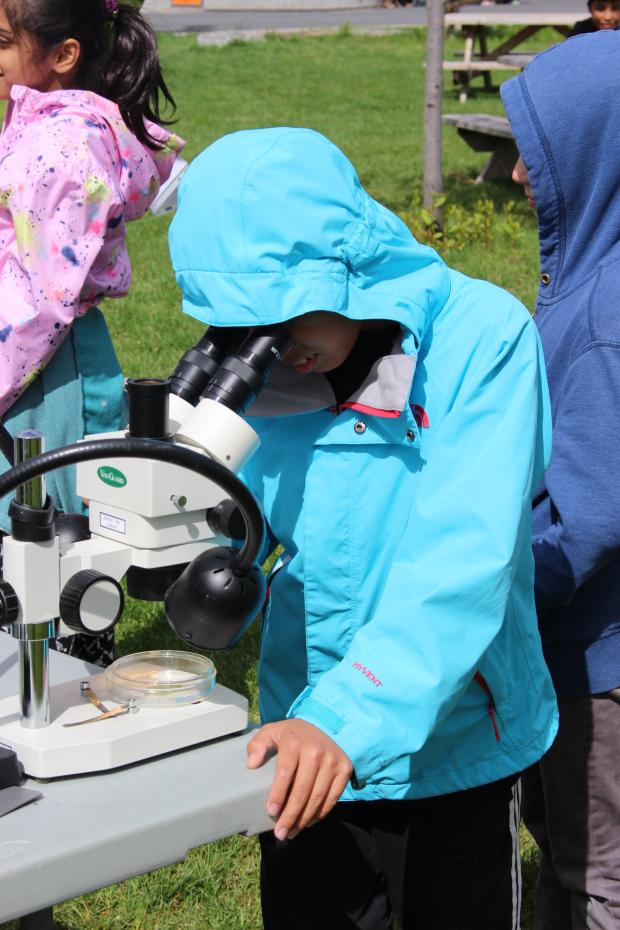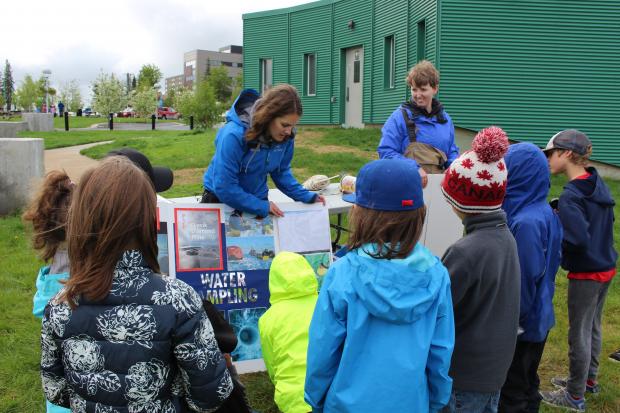Every year, Canada observes Rivers to Oceans Week starting on June 8, World Oceans Day.
In Canada, there are more than 200,000 km of coastline and the country’s rivers discharge almost 7% of the world’s renewable water supply. Here in the Northwest Territories, there are 163,000 km2 of fresh water.
To celebrate our nation’s abundant natural resource, each year during Rivers to Oceans Week the Department of Environment and Natural Resources (ENR) invites approximately 300 students in grades one and five to participate in a day of learning about water at Yellowknife’s Somba K’e Park.
The students spend the day rotating through different activity stations provided by the almost 20 organizations participating in the event. Every 12 minutes the children move on to the next station to learn something new about water.
Laurier University staff placed white carnations and celery stalks in coloured water. By the time the students arrived, they could witness the results of a process called transpiration. The carnation flowers were turning green, and red as were the celery leaves. The coloured water moved upwards throughout the plants!

To learn about benthics, ENR staff brought students pond dipping in the benthic zone along the shores of Frame Lake (the lowest level of the lake, including the sediment). The organisms they found are called benthic organisms and students were able to observe them under microscopes and identify them. Benthic organisms include worms, beetles, leeches, and nymphs.

Joint Task Force North and ENR demonstrated fish dissection.

Diavik provided a presentation on water sampling.

Other activities included:
- fish conservation with the Department of Fisheries and Oceans
- water safety with the Ruth Inch Pool
- transportation corridors with the Department of Infrastructure (INF) where students competed against each other in a relay race to build roads and bridges on a topographic map. Discussion followed on what the pros and cons were of putting roads and bridges where they placed them. INF staff then spoke of the influences transportation had on water and how to better manage it.
ENR would like to thank Javaroma, Domino’s Pizza, the City of Yellowknife, Ecology North, and the presenters for their contributions to this event.


